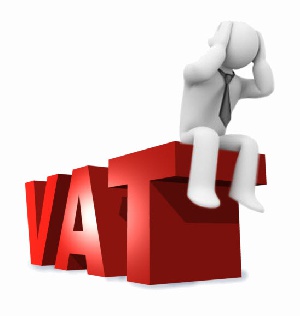Industrialists have asked government to put hold on implementation of the 2.5 percent VAT increase until ambiguities about what items the increment affects have been thrashed out.
The banking and insurance sectors have already got government to suspend the VAT increase until a list of items it affects has been compiled.
But other sectors like real-estate and pharmaceuticals are also calling for the increment to be suspended since they also have difficulties with implementation.
At an interaction with members of the Association of Ghana Industries (AGI) in Accra, Dr. Larbi Siaw, a tax policy advisor at the Finance Ministry, however said that he could not assure the other sectors that the tax will be put on hold.
“Government has the power to pass the law. I don’t have any power to put it on hold,” he told the troubled industrialists, who also feel that government is overtaxing a few companies instead of widening the tax net.
Dr. Siaw explained that the VAT increment does not affect the “core” activities of banks and insurance companies. Instead, it is to be charged on their “non-core” activities like consultancy and management services.
To the pharmaceuticals sector, Dr. Siaw said he was surprised to hear concerns that government is trying to make medicines more expensive. So far as the sector is concerned, the increment does not affect them ,he said.
“I cannot see why we should make medical supplies expensive for Ghanaians,” he added.
The discussions also centred on whether the taxes businesses are paying do reach government coffers in full, as some of the industrialists complained about the corrupt nature of some tax collectors.
Dr. Adu Gyamfi, an AGI Vice President and Chairman of Danadams Pharmaceuticals, said after determining how much VAT a company has to pay, some of the tax collectors will then say: “now, let’s talk”.
By so doing, he said, the tax officials try to connive with officials of the company involved to dupe the state of much-needed resources for development.
Commenting on the concern, Dr. Siaw insisted that “we are all part of the problem” and that “we all have to be the solution”.
He also impressed on business people to bear with government as it seeks to reduce the over-10 percent-of-GDP deficit.
The country, he said, is supposed to be of age, and it is now borrowing at commercial rates on the world market -- which makes it imperative to mobilise resources locally.
Business News of Monday, 10 February 2014
Source: B&FT













